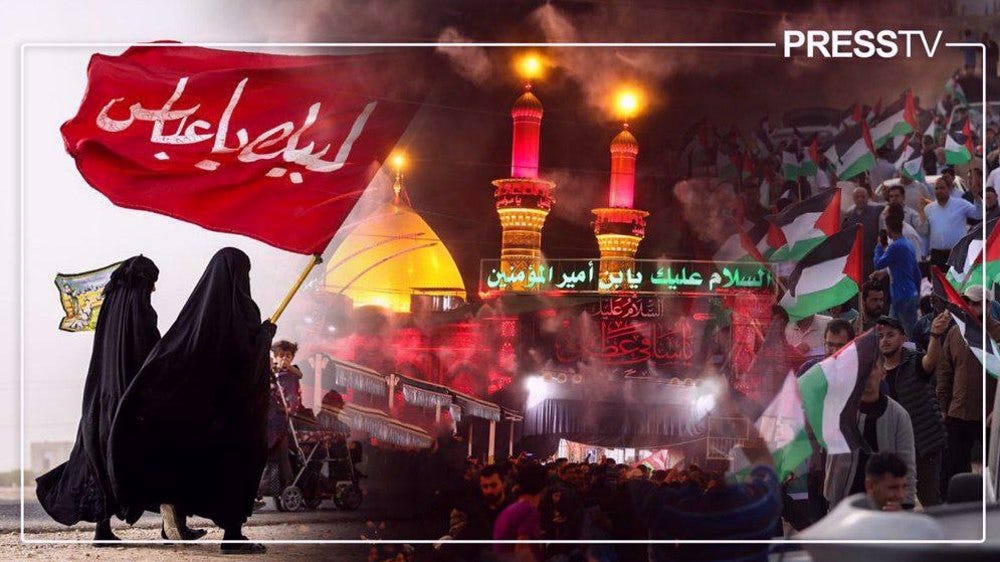From Karbala to Gaza: The Enduring Call to Resist Injustice
How the Spirit of Imam Hussain’s Stand in Karbala Inspires Today’s Struggles for Justice, Especially in Gaza
Every year, as the month of Muharram arrives, voices across the world unite to honour Imam Hussain (AS), the “Master of Martyrs,” whose stand in Karbala fourteen centuries ago redefined the meaning of resistance and moral courage. His uprising in 61 Hijri (680 AD) against the tyranny of Yazid remains a unique chapter in human history, continuing to inspire those who seek truth and justice.
Imam Hussain, the beloved grandson of Prophet Mohammad (PBUH), did not fight for power or privilege. He stood at the crossroads of truth and falsehood, justice and tyranny, and chose to be on the right side of history. As the poet Iqbal Lahori wrote, Hussain “watered the dry garden of freedom with the surging wave of his blood,” awakening a slumbering nation and uprooting despotism.
The Battle of Karbala was not about political gain; it was a confrontation between blood and sword, with Hussain and 71 loyal companions facing an army of 30,000. When asked to pledge allegiance to Yazid, Hussain’s response
—“A man like me cannot pledge allegiance to a man like him”—still echoes through time.
Each Muharram, the faithful reaffirm their commitment to the principles Hussain embodied. These commemorations are not mere rituals of grief, but acts of resistance and a renewal of the resolve to speak truth to power, just as Hussain did with his blood and his sister, Zainab bint Ali (SA), did with her words after Karbala.
The message of Karbala is timeless. In Ziyarat Ashura, believers pray for the honour to rise for justice, pledging to carry forward Karbala’s mission wherever injustice exists. The phrase
“Every day is Ashura and every land is Karbala” is not just a slogan
—it is a reminder that the struggle between right and might transcends time and place. Yesterday it was Karbala; today, it is Gaza.
Since October 2023, the people of Gaza have faced horrors reminiscent of Karbala: over 56,000 killed, mostly children and women, neighbourhoods destroyed, hospitals and schools bombed, and families torn apart. The cruelty of the oppressor remains unchanged, and every day in Gaza has become a family’s Karbala.
Yet, the Palestinian people refuse to kneel. With little but their resolve, they face one of the world’s most brutal military machines, backed by global powers. Their resistance mirrors the Hussaini spirit:
“Until death, no humiliation.”
The devotion and courage seen in Karbala live on in Gaza’s steadfastness.
Hussain’s cry, “Is there anyone to help me?” was not a plea to his enemies, but a call to the conscience of humanity. Every year, millions respond during Arbaeen, marching from Najaf to Karbala, declaring, “Labbaik ya Hussain”—“Here I am, O Hussain!”
Those who carry Hussain’s torch never surrender to falsehood. They speak truth to power, regardless of the consequences. Today, Palestinians embody that same refusal to bow to occupation and humiliation. Muharram, therefore, is not just a month of mourning, but an anthem of solidarity with the oppressed everywhere.
As Dr. Ali Shariati observed, human history is a manifestation of the eternal conflict between good and evil. The names and faces change, but the struggle endures. Hussain’s triumph and Yazid’s disgrace are recorded in history, and every revolution has two faces: blood and the message. Hussain and his companions gave their blood; Zainab (SA), the “Saviour of Karbala,” carried the message. So must we.
The tradition of Azadari (mourning) began with the captives of Karbala—Sayyeda Zainab (SA), Umme Kulsoom (SA), and Imam Zainul Abideen (AS)—whose words shook Yazid’s empire. Their elegies and sermons became weapons against oppression, and the spirit of defiance spread from Medina to the wider world.
Imam Zainul Abideen institutionalised Azadari, inviting poets to keep the memory of the martyrs alive. Later Imams, including Imam Mohammad Baqir (AS), Imam Jafar Sadiq (AS), and Imam Musa Kazim (AS), deepened the understanding of Karbala’s philosophy and encouraged its message to reach new audiences.
Fourteen centuries later, the Yazids of today cannot silence the truth. The blood of Hussain still speaks, and the mission of Zainab remains alive. Karbala is not just a place, and Ashura is not just a day—they are symbols of every stand against injustice and oppression.
As long as there are oppressors, there will be Karbalas. As long as there are Hussainis, there will be resistance. In the end, might fades, but right survives.
Source: PressTv


